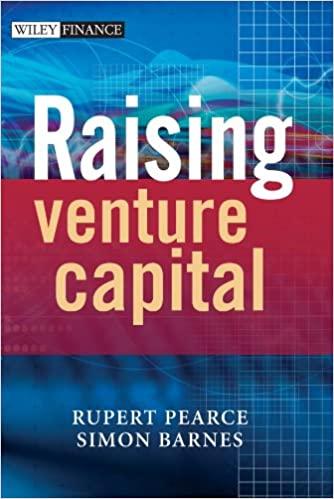Question
Homework 4 Chapter 10 1. Explain why the stock price of a firm may rise when the firm announces that it is repurchasing its shares.
Homework 4
Chapter 10
1. Explain why the stock price of a firm may rise when the firm announces that it is repurchasing its shares.
2. Discuss the reasons why firms engage in IPOs. Why the number of IPOs varies by periods? What factors would make firms less likely to engage in an IPO?
3. What are ADRs? Elaborate the participation of the U.S. investors in trading ADRs. What are some of the advantages of ADRs?
4. Assume a firm that is valued at $400 million has 40 million shares of stock outstanding. What is the price per share for this firm?
5. The annual dividend on Harvest Inc. stock is $4 per share and the stock's prevailing price is $98 per share. What is the stock's dividend yield?
6. The practice of purchasing IPO stock at the offer price and selling the stock shortly afterward is called:
| a. | flipping. |
| b. | skiing. |
| c. | flopping. |
| d. | none of the above. |
7. ____ occurs when a securities firm allocates share from an IPO to corporate executives who may be considering an IPO or other business that will require the help of an investment bank.
| a. | Flipping |
| b. | Spinning |
| c. | Laddering |
| d. | None of the above |
8. On average, IPOs of firms tend to perform ____ over a period of a year or longer.
| a. | well |
| b. | poorly |
| c. | about the same as the S&P 500 index |
| d. | none of the above |
9. Referring to your answer to question 8, what do you think explains this IPO performance?
10. Firms listed as "pink sheets" on the OTC market:
| a. | are typically very large. |
| b. | satisfy Nasdaq's listing requirements. |
| c. | are typically owned by various institutional and individual investors. |
| d. | none of the above. |
11. The prevailing price per share divided by the firm's earnings per share is known as the
| a. | dividend yield. |
| b. | price-earnings ratio. |
| c. | fully diluted earnings per share. |
| d. | annual dividend. |
12. The ____ is a value-weighted average of stock prices of 30 large U.S. firms.
| a. | Dow Jones Industrial Average |
| b. | Standard and Poor's 500 |
| c. | New York Stock Exchange Index |
| d. | Nasdaq |
Step by Step Solution
There are 3 Steps involved in it
Step: 1

Get Instant Access to Expert-Tailored Solutions
See step-by-step solutions with expert insights and AI powered tools for academic success
Step: 2

Step: 3

Ace Your Homework with AI
Get the answers you need in no time with our AI-driven, step-by-step assistance
Get Started


